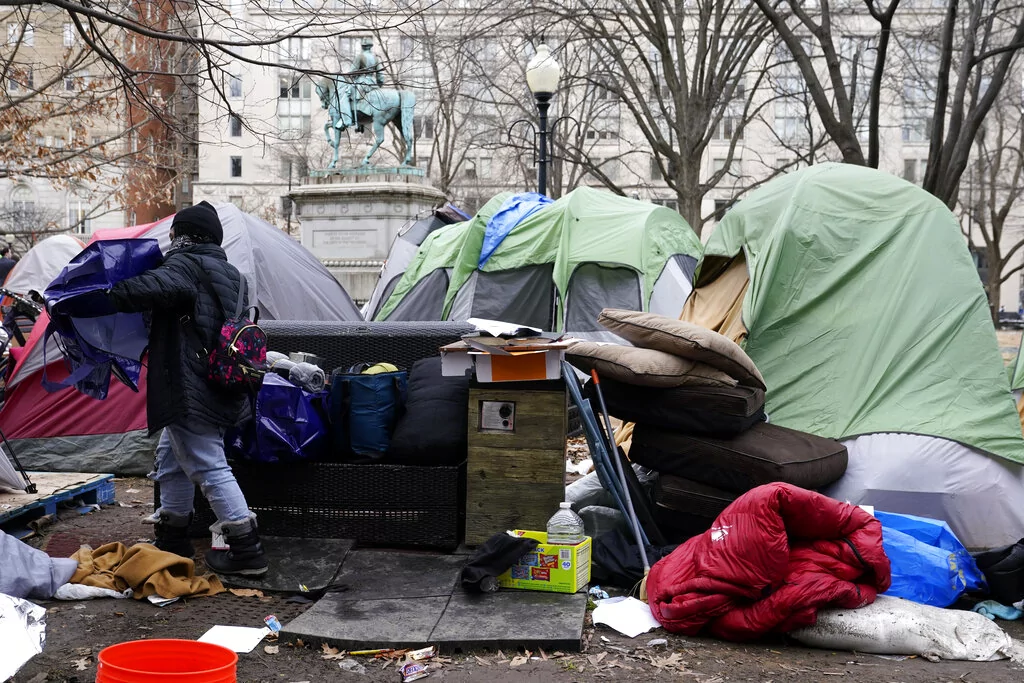

A Bay Area city passed a new ordinance making it illegal for individuals to “aid and abet” people in homeless encampments on public property.
The Fremont City Council voted 6-1 on Tuesday to enact a penalty on individuals “causing, permitting, aiding, abetting or concealing” a homeless encampment. Those found guilty of a misdemeanor could be jailed for up to six months or face a $1,000 fine.
The ordinance makes Fremont the first city in the United States to penalize a person or organization for “aiding and abetting” a homeless person.
Advocates for the homeless, such as Abode Services, a local nonprofit organization, are worried that they could be penalized for providing the unhoused with basic living necessities such as sleeping bags and tents, given the vague definitions of “aiding” and “abetting.”
Vivian Wan, the group’s CEO, fears the city may pressure her team to divulge where homeless encampments are located.
“The job’s hard enough,” Wan told CalMatters. “I can’t imagine doing the hard work that’s both physically and emotionally draining and then also have to be worried about your own legal liability. It’s incredibly frustrating.”
Fremont city attorney Rafael Alvarado Jr. tried to calm concerns during Tuesday’s meeting by saying the punishment would not come from providing assistance such as food or clothing.
Mayor Raj Salwan echoed the same sentiment, saying police wouldn’t target workers for handing out these items, providing legal resources, or even handing out tents. Instead, Salwan said the “aiding and abetting” clause would apply to people who help build structures.
“Some individuals come kind of like vigilantes,” Salwan said. “They want to start building these structures for the unhoused that are unsafe. Then this provision would come in.”
Still, the specifics of the ordinance remain unclear to people inside and outside the city, and many believe its language is broad enough to get people into trouble. When asked by the outlet if it would be against the law to help someone pitch a tent, the mayor said he would need to “seek clarification from the city attorney.”
Prior to the legislation being passed, Eve Garrow, a senior policy analyst and ACLU of Southern California advocate, shared that she believed the ordinance would “put a chill on any type of humanitarian aid or help that local residents would otherwise be providing to people who are unhoused and unsheltered.”
CLICK HERE TO READ MORE FROM THE WASHINGTON EXAMINER
Fremont’s ordinance came as the Supreme Court ruled last June in City of Grants Pass v. Johnson that a city could ban camping or homeless encampments on public property even if no housing shelters are available.
Since the Supreme Court decision, nearly 150 cities have created laws banning public encampments, with more than 40 of those cities being in California.





